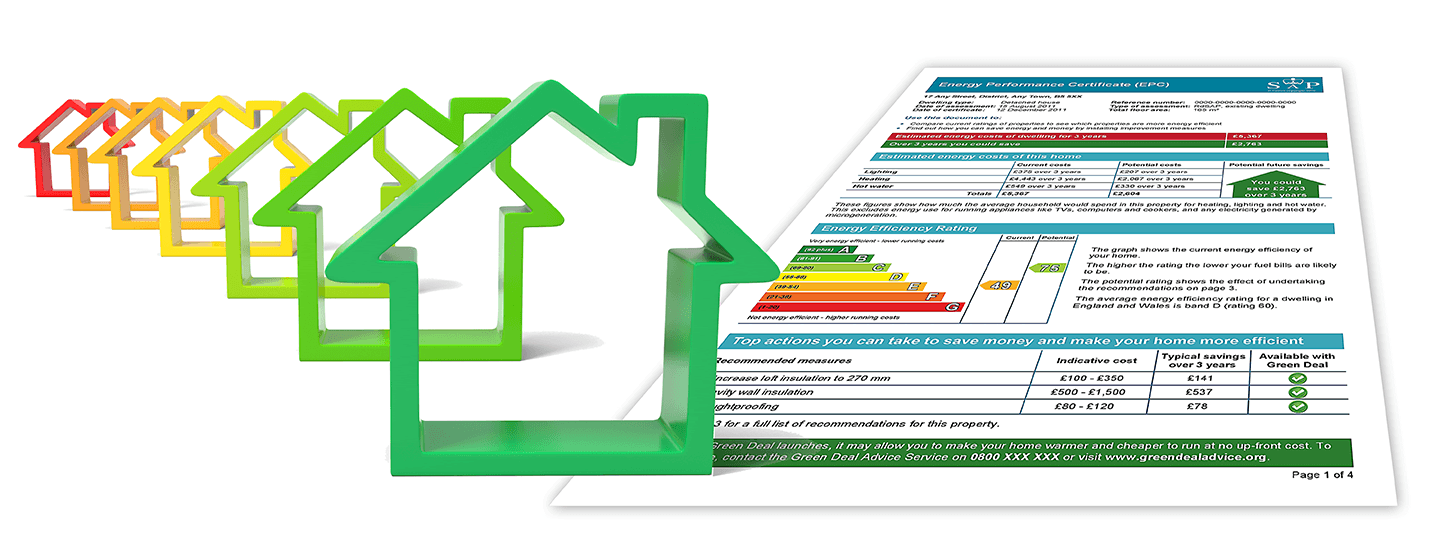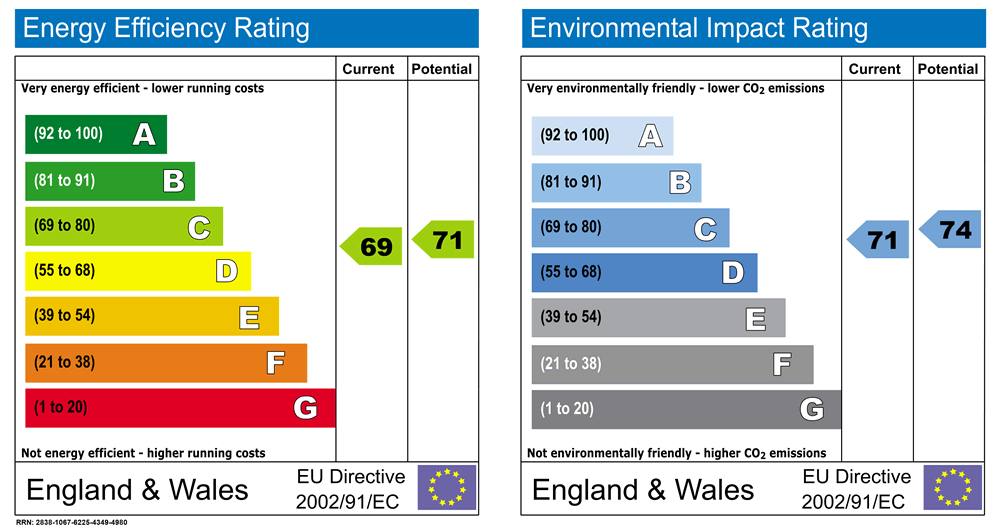


It's key to buying, selling or renting a property as it gives you an idea of:
Energy bills
Carbon emissions
What you can do to improve its energy efficiency
Even if you're not moving, it's worth having a look at your home's EPC to find out what you can do to reduce your energy bills and carbon emissions. Once you've made improvements to your home, make sure to have a new EPC issued. You can access any home's EPC through the government's website.
Your EPC will have two main charts with the rating bands. The bands go from A to G, with A being the best rating your home can have, and G being the worst. In the chart, you can see the current rating and potential rating, if you were to carry out the recommended home improvements.
The numbers in each rating reflect the government's Standard Assessment Procedure (SAP) and go from 1 to 100 SAP points. These scores are divided into bands as follows:

EPC rating A = 92-100 SAP points (most efficient)
EPC rating B = 81-91 SAP points
EPC rating C = 69-80 SAP points
EPC rating D = 55-68 SAP points
EPC rating E = 39-54 SAP points
EPC rating F = 21-38 SAP points
EPC rating G = 1-20 SAP points (least efficient)
Improving your EPC means improving your home's energy efficiency. It also means you could reduce your energy bills, make your home warmer and more comfortable and increase its value and reduce your carbon footprint. Here are some of the ways to improve your EPC:
No obligation survey at your home in the next 24 hours